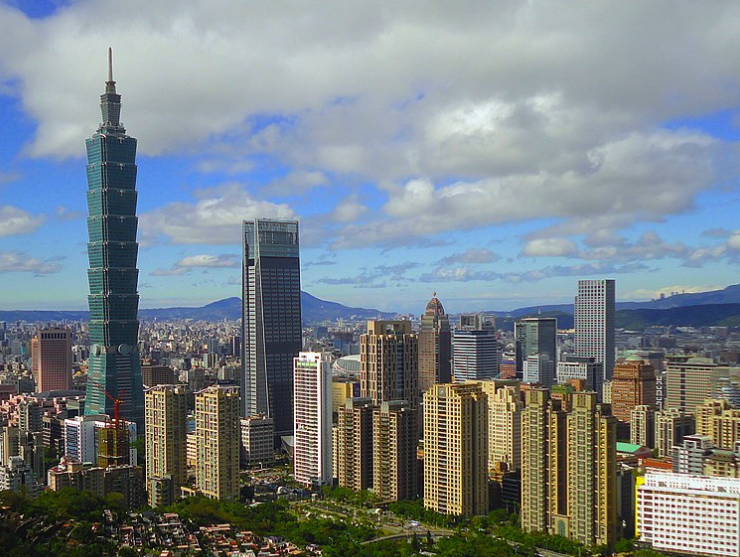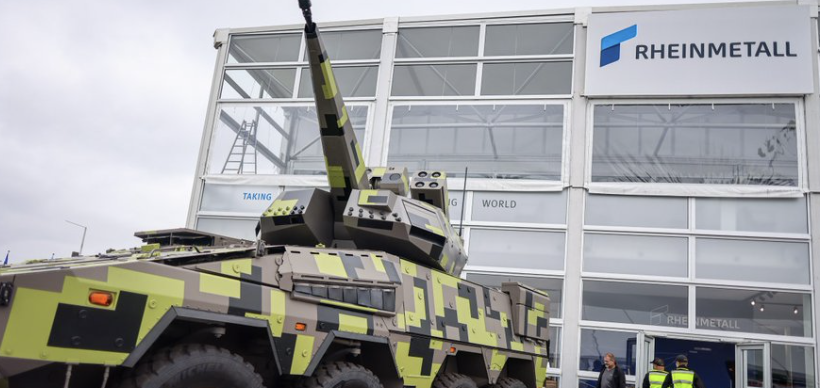News
Taiwan — South Africa’s Newest can of Diplomatic Worms
The location of Taiwan’s liaison office threatens to once more land it in an awkward diplomatic situation that will eat at South Africa’s credibility.

Former Director, The Brenthurst Foundation

Former Research Director, The Brenthurst Foundation

South Africa’s decision to demand that Taiwan move its representative office from Pretoria has grave implications for South Africa’s sovereignty and risks upending South Africa’s wider trade and investment relations with third parties for no benefit, save fuzzier ties with another autocrat.
These risks should not be brushed over by a political fantasy about whether Taiwan is a country or not.
South Africa ended its formal diplomatic relationship with Taiwan in 1998 when then president Nelson Mandela entered into a formal relationship with China which required the acknowledgement of the “One-China Principle”.
This principle essentially asserts that Taiwan is part of China and not an independent state that deserves recognition.
Although formal relations ended, South Africa and Taiwan have maintained “Liaison Offices” which have essentially functioned as embassies. South Africa has a liaison office in Taipei and Taiwan has liaison offices in Pretoria and Cape Town.
The reasons behind these continued relations are obvious. There is a large settled Taiwanese community in South Africa which requires the services of a liaison office and there are ongoing business connections and investments, especially in light industry.
The biggest problem with South Africa’s demand that Taiwan move its liaison office from Pretoria is, however, not about whether Taiwan is a country.
This move by South Africa is notable in two respects. For one, it runs counter to the accepted practice by most countries which seek to maintain a relationship with Taipei below the level of formal ties. Like South Africa, they open trade or liaison offices to get around this problem. This case is unusual since apparently this is not enough for Beijing.
Related to this, second, far from undermining China over Taiwan’s presence, this move directly threatens South Africa’s sovereignty by allowing a foreign power – in this case China – to dictate which countries may have offices in the capital city.
China calls the shots
South Africa’s headlong embrace of BRICS and the fawning meetings held between President Cyril Ramaphosa and China’s Xi Jinping suggest that the country is happy to allow China to call the shots.
It is widely believed that China first demanded the eviction of the Pretoria office during Xi’s visit to the country during the BRICS summit in August last year.
Once South Africa accedes to these sorts of demands, the door can only open to more aggressive diplomacy from China.
What will follow next? A demand that the offices be closed altogether? A demand that South Africa alter its posture towards other countries that China regards as unfriendly or threatening?
The curious thing is that South Africa has more in common with Taiwan than China. Both are vigorous democracies with regular contested elections where human rights are respected.
South Africa has chosen of late to hide its democratic credentials under a bushel, preferring to talk about its place in the Global South among countries such as China and Russia (both incidentally firmly in the North) where democracy is prohibited.
Added to this is China’s militarily aggressive strategy towards Taiwan, including regular naval drills and bluster. What will South Africa say should China choose to go to war with Taiwan? Will we do what we did with Ukraine and abandon a fellow democracy in favour of an aggressive autocrat?
South Africa’s attempt to bully Taiwan may also have consequences for its attempt to persuade traditional partners in the West that it has not abandoned them.
Already Republican Senator Marsha Blackburn has said “the United States should not tolerate this behaviour from South Africa.”
“I am calling on … the Biden administration to make it clear that there will be consequences if South Africa works with the (Chinese Communist Party) to bully Taiwan,” including removing South Africa from a key trade programme, Blackburn said.
South Africa has worked hard to restore the US’s faith in its Agoa trade arrangement which gives the country access to US markets, but Blackburn has asked that “the United States must not provide trade benefits to countries that prioritise China’s influence over democratic partnerships.”
The timing too could not be worse, given the prospect of a Republican administration in a few weeks. And even if Donald Trump does not win the presidency, Congress is unlikely to give Pretoria a free pass over this issue.
South Africa, still recovering from its embrace of Russia and its decision to pick sides in the Middle East, now faces a fresh diplomatic controversy, undermining the positive impression created by the ANC’s loss of political dominance and the formation of the government of national unity.
Taiwan’s foreign minister, Lin Chia-lung, has made it clear that it will not move the Pretoria office which was established based on an agreement signed with the South African government in 1997.
According to Lin, this is “non-negotiable” which means that if South Africa wants to go ahead with the eviction, it will have to be done by force, leading to an unedifying media spectacle and a high-profile court case which it is unlikely to win given the existence of a signed agreement.
South Africa’s determination to shift the country’s alignment away from the West and towards the worst elements of the BRICS alliance continues apace despite its efforts to project that it is pivoting back to neutrality.
Julius Malema controversially said with respect to the Gupta’s family influence over Jacob Zuma that the president had sold the country for a plate of curry.
Anyone for Peking duck?
This article originally appeared on the Daily Maverick


